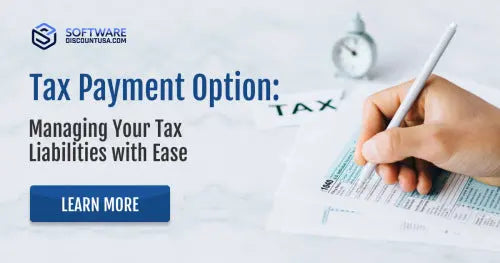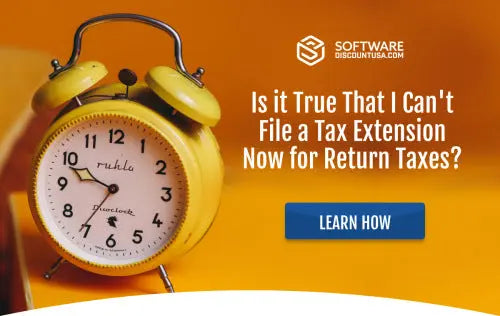
Expert Guide to Tax Payment Options: Managing Your Tax Liabilities with Ease
Best Deal on TurboTax!
Navigating the world of taxes can be complex, but understanding your options for paying what you owe can help alleviate stress and ensure you're meeting your obligations. Whether you're unable to pay by the original due date or need more time to settle your tax debt, there are various payment methods and arrangements available to suit your needs.
1. Interest and Penalties: A Motivation to Act
If you find yourself unable to pay your tax liability in full by the original filing due date, it's crucial to understand the implications. The outstanding balance will accrue interest and a monthly late payment penalty. Additionally, failing to file a tax return on time results in a separate penalty. Even if you can't pay the full amount, filing your return on time is essential to avoid these penalties. Paying as much as you can upfront is recommended to minimize the additional charges.
2. Electronic Payment Options: Quick, Secure, and Convenient
Electronic payment options provide a hassle-free way to settle your federal taxes. The IRS offers several secure methods for making payments online, by phone, or through mobile devices:
- Electronic Federal Tax Payment System (EFTPS): This allows you to pay taxes online or by phone. You can schedule payments in advance, receive instant confirmation, and opt for email notifications about your payments. The IRS employs advanced encryption technology to ensure the security of your transactions.
- IRS Direct Pay: A secure service for paying taxes directly from your checking or savings account. It's free to use and offers instant confirmation. With the ability to modify or cancel payments up to two business days before the scheduled date, it provides flexibility and convenience.
- Card Payments and Digital Wallets: You can make payments using credit cards, debit cards, or digital wallets through online payment options and the IRS2Go app.
3. Pay by Mail: Traditional Option
If you prefer traditional methods, you can enclose a check or money order with a copy of your tax return or notice. Ensure that the payment is payable to the United States Treasury and includes necessary details on the front, such as your name, address, taxpayer identification number, and tax year.
4. Payment Plans: Flexible Arrangements
If paying your tax debt in full isn't feasible, the IRS offers various payment plans to help you manage your obligations over time:
- Short-Term Payment Plans (up to 180 days): If you need a bit more time, you can set up a short-term payment plan using the Online Payment Agreement (OPA) application or by calling the IRS. While there's no fee for this option, interest and penalties continue to accrue until the liability is paid in full.
- Regular Payment Plans (Installment Agreements): For balances that can't be paid within 180 days, a monthly payment plan can be established. You can choose from various payment methods, including direct debit, payroll deduction, EFTPS, credit card, check, money order, and cash at retail partners.
Best Deal on TurboTax!
5. Offer in Compromise: A Reduced Settlement
An Offer in Compromise (OIC) is an agreement between you and the IRS to settle your tax liability for a reduced amount. This option is available if you're facing financial hardship and meet specific criteria. The IRS will consider factors like your ability to pay, income, expenses, and asset equity.
6. Temporarily Delay Collection: Financial Hardship
If paying would hinder your basic living expenses, you can request a temporary delay in collection. The IRS may classify your account as currently not collectible until your financial situation improves. While the debt continues to accumulate penalties and interest, this option can provide relief during challenging times.
7. Responding to IRS Notices: Take Action
Responding to IRS notices promptly is crucial. If you can't pay at the moment, gather your financial information and contact the IRS for assistance. Remember, you have rights and protections throughout the collection process, and understanding the Taxpayer Bill of Rights is essential.
In conclusion, the IRS offers a range of options to help you manage your tax liabilities. From electronic payments for quick and secure transactions to installment agreements tailored to your needs, these choices empower you to meet your obligations while considering your financial circumstances. If you're unsure which option is best for you, seek guidance from tax professionals or the IRS to make informed decisions about managing your tax responsibilities.
Best Deal on TurboTax!



